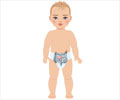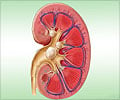The facial expression in Japanese children almost matured by the age of 13. This finding can help understand expressions of kids with autism.

"This is the first study to investigate the development of face perception in a large number of Japanese children. We are expecting that this result can be applied for understanding of the face perception of the children with the autism spectrum disorder," explained Miki Kensuke from the National Institute for Physiological Sciences in OKazaki, Japan.
Previous studies in adults using electroencephalogram (EEG) demonstrated a special component N170, shown to be larger during the viewing of faces than during the observation of other objects.
The Japanese research team analyzed the face-related N170 component by viewing an upright face, inverted face and eyes stimuli in 82 Japanese children aged between eight and 13-year-old.
N170 was longer in duration and/or had at least two peaks in the 8 to 11-year-old children, different from adults, whereas it was sharp and had one peak in the 12 to 13-year-old children, similar to adults.
The team concluded that the face perception of Japanese children almost matured by the age of 13 years.
It showed that cultural differences might have been one of the reasons for this.
Source-Medindia
 MEDINDIA
MEDINDIA




 Email
Email





